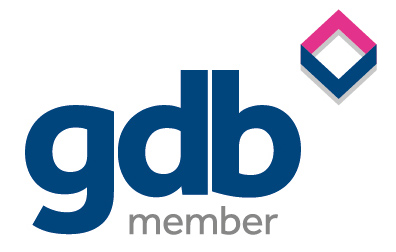Harvey John
Unit 2 Ferry Wharf
Hove Enterprise Centre
Basin Road North
Portslade, East Sussex
BN41 1BD
Getting your CV right as an accountancy professional can feel like being lost in the woods.
Over the years, I’ve reviewed thousands of CVs, and the range of styles is truly impressive! While tips for writing a good CV are widely available, adding a touch of individuality can make a positive impact. Some employers appreciate this approach as it gives a better sense of who you are. That being said, there are a few key best practices to help ensure you present yourself in the best possible light.
Starting your CV from scratch? Download our free Accountancy CV Template to help you structure it effectively and make a strong first impression.
Here are my 4 top tips for accountancy professionals looking to get their CVs in shape:
1. How to Write a Personal Profile in Your CV
This opening section can often be the trickiest part and create confusion. The best practice is to write in first-person implied, which uses first-person verb tense but omits pronouns (I, my, we, etc.). Here’s an example:
A part-qualified ACCA Assistant Accountant with honed skills in detailed management reporting and analysis. Able to provide meaningful insights and commentary to aid in informed business decisions. Recently played a key role in implementing a widescale finance system update. Highly experienced in Excel, including pivots and lookups. Currently seeking a Management Accountant opportunity within a dynamic organisation that will support continued ACCA studies.
Your personal profile is one of the easiest areas to tailor to a specific role. Studies of hiring managers show they make quick decisions and spend 90% of their time on the first 2/3 of page 1 of a CV. So, get their attention quickly.
Use keywords relevant to the role you’re applying for. For example, if an advert states they want a fully AAT-qualified professional who has managed teams, ensure “AAT qualified” and details of your staff management experience are prominent.
Most personal profiles are too brief, and many candidates obviously haven’t updated theirs since their last job search. To make an impact, start strong and ensure you’re selling yourself by following these tips.
2. Education & Professional Qualifications: Before or After Employment History?
There is definitely ambiguity here concerning best practice. Most resources suggest putting it after your work history. However, I think it depends on your experience level and the role you’re applying for.
For graduate or school-leaver roles, the emphasis is typically on your academic record, so put that first to get their attention. If you have a strong academic record and/or are progressing well with your professional qualifications, keep it first for those initial career moves. If your practical experience sells you better, put it after. Likewise, if you left education some time ago, or the four letters after your name make it clear you’re at the qualification level needed, jump straight into your career history.
Always list education and employment history in reverse chronological order, i.e., the most recent first, and work your way back. Don’t forget to add additional workplace training/qualifications but be mindful of ‘is it relevant?’, especially if you’ve changed sector.
Small tip: leaving your results/grades off makes hiring managers assume they’re bad. If they’re not – add them, rather than just stating a degree or A-levels achieved for example.
3. Writing a Description of Your Role
As with your profile, your role descriptions should also be written in ‘first-person implied’ but still avoid “I, my, we” etc. Bullet point your duties rather than writing lengthy paragraphs that busy hiring managers are unlikely to read.
For example:
- Daily bank reconciliations for six bank accounts in GBP, EUR, and USD.
- Ensuring supplier invoices match purchase orders, and processing invoices onto the system.
- Answering queries and maintaining good working relationships with suppliers.
- Submitting weekly payment runs in GBP, EUR, and USD.
Consider tailoring role descriptions to the specific job you’re applying for. Often, candidates have more relevant experience than is evident on their CVs. Add additional relevant duties, re-word duties to more closely match the job description, or bring key duties to the top of your list if they’re essential for the role.
Adding achievements for each role can also set your CV apart. Examples include clearing a significant backlog, covering for absent colleagues, identifying an error that saved money, streamlining processes, or creating a new report or spreadsheet. If you don’t have notable achievements for every role, create a separate section for career achievements and list them all together. This way, you avoid giving the impression that you underperformed in certain roles.
4. How long does a CV need to be?
The typical advice is usually between 1-2 pages. But, you can forget this rule. If your content is relevant and not overly wordy, three pages are better than leaving off credible information, especially for more experienced candidates. Don’t sacrifice readability with tiny font and congested text. The ease of reading and overall look of the CV is important.
Keep your content concise and to the point, but if it’s valuable to your application, include it. A CV shouldn’t ever need to be longer than 3-4 pages maximum.
A Few Additional Top CV Writing Tips:
- Don’t include pictures, such as a photo of yourself or company logos.
- Make it clear if a role was temporary or contract to avoid the impression of job-hopping.
- If adding hyperlinks to online profiles like LinkedIn, audit your profile to ensure it aligns with your CV and sells you well. Consider shortening URL links with tools such as Bitly.
- Thoroughly check for spelling and grammatical errors and have another person review it for a second check.
- Please avoid excessive use of caps lock! Only capitalise the start of sentences, acronyms, names/titles, or proper nouns.
- Spell the word “liaise” correctly – this is such a common spelling mistake!
Whether you’re starting your CV from scratch or just need a fresh perspective, our free CV Template is a great resource to help you structure it effectively.
If you’re wondering if there’s more you can do to stand out in your job search, the Harvey John Accountancy & Finance team is here to help with additional tips and tailored CV feedback. We’re here to help you start your search with total clarity.
Check out our current Accountancy job openings here.
Author

She’s highly attentive to every assignment ensuring a quick moving and effective process in which no stone is left unturned in her search for the perfect match. An understanding and dedicated recruiter, she leverages her industry knowledge and network to deliver the best results for clients and candidates alike.







